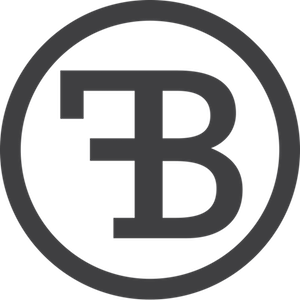With
the COVID-19 pandemic, a huge amount of right and wrong information
has spread to the world. This flood of information is called
infodemic. Due to the excessive amount of information, it is
difficult for people to find reliable information when needed.
We
have all heard instructions telling us how to protect ourselves from
the corona virus. We have learned the importance of washing our
hands, covering our coughs and sneezes, and avoiding close physical
contacts with others. But are we prepared to protect yourself from
infodemic – information epidemic or an overwhelming flood of
information?
Fact
checkers have been fighting against mis- and disinformation all
around the globe. The CoronaVirusFacts / DatosCoronaVirus Alliance
database already contains more than 5.000 coronavirus fact scans.
The
misleading information can be divided into different categories.
Misinformation refers to unintentionally disseminated incorrect
communication without willful intent or attempt to cause
harm. Disinformation means intentionally misleading
communications with the purpose of causing harm to a person,
community, group of people or government.
One
of the most recent COVID-19 fact checks concerned a claim that famous
French blue cheese, Roquefort, is a medicine against Covid-19. The
French “Les
Décodeurs” of “Le Monde”verified
the claim and they found out that there
is no scientific proof to support this claim – so it was declared
to be false information. Two days later, its author made it public it
was a joke.
Together
with the teachers of the French Finnish school as well as with
Finnish fact checking experts of Faktabaari we have collected some
recommendations which could help to distinguish information from
disinformation.
If
you come across a strange statement or claim, take a moment to
critically reflect the following aspects:
- Who
has produced this information and with what expertise?
- Can you find the writers’ names or a reliable web address?
- When and where has the information been published? Is it still up to date?
- What viewpoint does the source represent (that of a journalist, researcher, policymaker, a public authority, lobbyist, what is the political leaning?)
- Why
is it made? What
are the motives of the disseminator?
- Is it an advertisement, a piece of news or someone’s opinion?
- Does anyone benefit from this? Is it sponsored by someone?
- To whom it is targeted. How did you get it?
- Does
the message aim to elicit a strong emotional response?
- Are there strong story elements attached to the message?
- Are there striking images in the message? Are the pictures authentic, untouched and unmanipulated?
- Can you verify the information from another source known to be reliable?
Social
media constantly prompts us to make choices: should I
click, like, share or comment? In a digital world,
critical thinking requires reflection, ability to resist
your impulses, as well as resilience to mis- and
dis-information. Do not believe everything you see and be careful
when sharing information if you have not verified it.
It
is relatively easy to make a quick fact-check if you have got access
to internet connection. Here
are some useful hints and links:
-
Fact-proof the claim by trying to find different sources which could confirm the facts.
-
Use several search engines and avoid using Wikipedia or any other single source as the only source of information.
-
Check the domain owner information from e.g. WHOIS- service (https://www.whois.com/)
- Verify
the authenticity of the images by using e.g. Google
reverse image search.
- First Draft has an excellent toolbox to help you to verify images, links and videos (https://start.me/p/vjv80b/first-draft-basic-toolkit)
- Check also the free verification tools offered by InVid (https://www.invid-project.eu/)
-
Check if the fact-checking organisations have already examined the case (e.g. https://www.poynter.org/ifcn-covid-19-misinformation/)
- Trust scientific facts, not mere opinions!
The
internet and social media are overloaded by information on every
imaginable subject. It is a real challenge for us all to find,
select, use and share the most reliable information. If we are
conscious and sensible social media users, equipped with a healthy
critical thinking approach and basic information literacy skills, we
can avoid getting fooled. Let’s protect ourselves and our friends
from an infodemic! Let’s reflect and check the facts before sharing
or liking anything!
Read
more
The
CoronaVirusFacts / DatosCoronaVirus Alliance database, https://www.poynter.org/ifcn-covid-19-misinformation/
Roquefort
case, Les
Décodeurs, Le Monde, https://www.lemonde.fr/les-decodeurs/article/2020/04/22/non-le-roquefort-n-est-pas-un-remede-contre-le-covid-19_6037460_4355770.html
Infodemics
Observatory, 2020, , https://covid19obs.fbk.eu/
Faktabaari, https://faktabaari.fi

